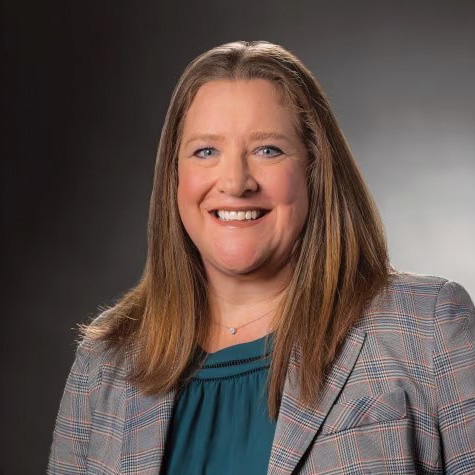Food Systems Podcast 58
In discussion with Deanna Kovar
Monday, Apr 08, 2024
In this episode, Mark Titterington talks to Deanna Kovar, President of the Worldwide Agriculture and Turf Division at John Deere. She shares insights on how John Deere is leading the transformation in sustainable technologies, precision agriculture and digital innovation to drive change and promote sustainability in the agricultural machinery industry.
Here is a summary of the conversation.
How is John Deere leading the transformation towards sustainable technologies, precision technologies and digital innovations in the agriculture machine industry,to drive change and promote sustainability?
It starts with our higher purpose: We run so life can leap forward. Our No. 1 goal is to make John Deere customers the most profitable and most sustainable farmers in the world. We’re doing that in a number of ways, primarily precision ag technologies which we’ve been delivering for 25 years. In the 2020s we reached a new level in data management and helping farmers collect, use and make important decisions from data. We’re very focused on computer vision and machine learning to allow machines in the field to be superhuman and make decisions on the go that reduce inputs and grow yields.
Tell us about specific efforts you’re making to improve environmental footprint, efficiency and sustainability across the ag value chain.
Our Leap Ambitions are how we measure ourselves against our smart industrial strategy and they include sustainability goals for John Deere, our factories, and equipment. On the farm, equipment is a very small part of the environmental impact, and the bigger opportunities are in helping farmers become more efficient with inputs – like fertilizer, herbicides, pesticides. Inputs account for two-thirds of the CO2 emissions from broad acre agriculture today.
By 2026, our goal is to have our customers be 20% more efficient in nutrient use and pesticide use on the farm. For example, we have a product for corn growers who use a starter pop-up fertilizer which reduces the quantity they use by two-thirds.
The beautiful part of agriculture is that environmental improvement is almost always economic value as well.
Protests by farmers in Europe show they’re concerned that they’re being asked to do more environmentally without seeing the value of that in their incomes. Is our industry collectively doing enough to give them a clear line of sight and to support the transition?
We invest to find the sweet spots where there’s economic value and environmental value. Farmers are business people; they won’t adopt unless there is economic value. Lowest cost and efficiency is going to be a key part of whether farmers survive and thrive.
We can never have enough industry collaboration and coordination, from inputs to equipment to technology all the way through the food chain. And we need to tell the story of the environmental value that’s already been created by tools that have been available for years. One great example to me is AutoTrac™, the auto-guidance solution John Deere developed in 2002. It saves 10% of inputs straight away.
The protests also highlight farmers’ view that there’s too much administrative burden. What are John Deere’s solutions to that?
Back in 2011 we started connecting every one of our machines. Now through technology we can move the data in real time. We created the ag industry’s most-used digital cloud-based platform, John Deere Operations Center. It’s on farmers’ mobile phones and we’re helping them use it to benefit from their sustainability practices. In the US, we have two sustainability programmes linked to the Operations Center, which limits the burden of participating in those programmes. For dairy customers all over the world we’ve partnered with De Laval to create the Milk Sustainability Center. Data can be a burden, but it shouldn’t be a burden.
Transformation always requires partnerships. How do you see the role of, especially, public-private partnerships in driving adoption of sustainable practices?
At John Deere, we see ourselves as a leader, driving thought leadership and policy-type opportunities. Public-private has to be a part of our industry; we have to stay aligned with the views of regulators. We have to work together based on an understanding of where agriculture is starting from, articulating the problems and the easiest ways to solve them.
Looking ahead to the next ten years, what are the biggest challenges – and what excites you the most?
Talking to farmers all over the world, one of the biggest issues I hear about is skilled labour, so one of the biggest opportunities to help is with automation. And to really take the waste out of agriculture by automating, as with our See & Spray and Sense & Act technologies that allow us to cut herbicide use by 60%.
There are way more opportunities that will allow us to drive economic and environmental sustainability together. I’m super excited about the automation that’s going to come.
If you have found this short summary interesting, there’s lots more to hear in the full 23-minute conversation. It is available now on iTunes, Podbean or Spotify or on this website.

Deanna Kovar
Deanna Kovar is responsible for the overall management and performance of John Deere's Small Ag and Turf...see more
